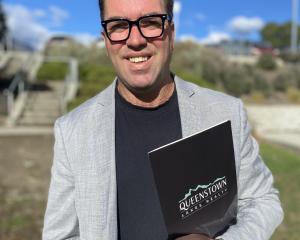About a quarter of the Queenstown Lakes District Council’s proposed rates increase stems from "leaky-building" claims, for which one bust ex-developer is largely responsible.
Of the proposed 5.96% rates rise, 1.6% stems from the council spending about $40 million in the past financial year defending and/or resolving weathertightness claims.
Council chief executive Mike Theelen confirmed "a very substantial chunk" was in relation to apartments developed in the late 2000s by Invercargill developer Ross Wensley, whose daughter-in-law Olivia Wensley is standing for the mayoralty this year.
In trying to recover repair costs for serious building defects, apartment owners had not been able to sue Ross Wensley, as his development company — other directors of which were Raewyn Wensley, Greg Wensley and Julie Jack — went bust.
Instead, they lodged claims against the council as the body that issued building consents, and other parties.
Last December, owners of the 41-unit Oaks Club Resort in Queenstown’s Frankton Rd, at which the repair bill was estimated to be $40 million to $45 million, sued the council and other parties but settled just days before a scheduled court case.
That settlement is believed to have cost ratepayers tens of millions of dollars.
Meanwhile, the council and other parties are facing a claim of at least $120 million — which could rise to more than $160 million — from owners of another Wensley-built Frankton Rd complex, the 84-unit Oaks Shores, which is being rebuilt.
Last week, a council agenda revealed the council paid law firm Wynn Williams $2,828,631 in the nine months from July 1 last year to defend weathertightness claims.
Mr Theelen said the council had settled leaky-building claims in the past, but none had been on this scale.
"We haven’t got the largest claims in the country ... but I think the challenge for this community is we have to defray this over a much smaller population base."
The leaky-building component of the proposed rates rise — due to be confirmed next Thursday — is $50 on a median residential property.
Mr Theelen said the council could end up as the "last person standing" when it came to leaky-building claims.
"The way the law is written in New Zealand is [liability] is held jointly and severally, so if the builder’s not there, and we are, we’re exposed to that.
"Our fundamental role is to minimise the cost on ratepayers, and make sure as many parties are able to be joined as possible — that’s a responsible thing for me to do."
By Philip Chandler












